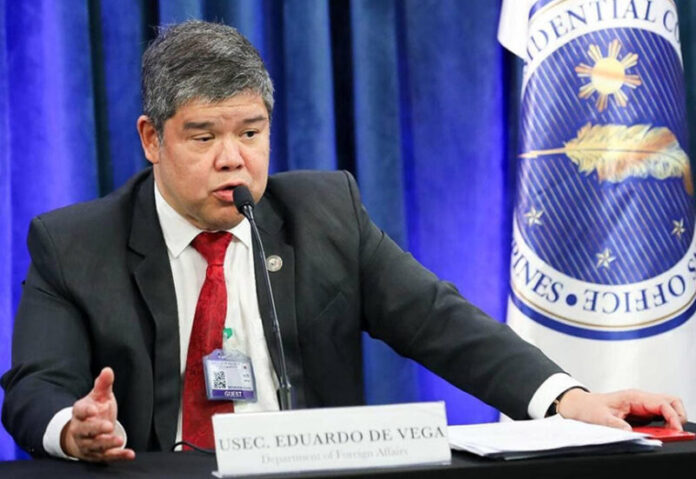
-
The Philippine government is imposing stricter measures on the deployment of seafarers traveling through global hotspots following the Houthi attack that killed two Filipino seamen
-
The Department of Foreign Affairs and the Department of Migrant Workers will enforce stricter limitations on deploying Filipino seamen
-
The DMW issued an advisory on February 16, categorizing “warlike and high-risk areas” and granting Filipino seafarers the right to refuse sailing, with repatriation and compensation options
The government will strictly implement seafarers’ deployment rules in global hotspots following the Houthi attack on March 6 that killed two Filipino seamen and injured others, according to the Department of Foreign Affairs.
The DFA and the Department of Migrant Workers (DMW), along with concerned manning agencies, will enforce stricter limitations on deploying Filipino seamen to ships navigating through recognized global hotspots, Foreign Affairs Undersecretary Eduardo De Vega said on March 12.
The directive responds to the Houthi assault, targeting the Barbados-flagged bulk carrier M/V True Confidence in the Red Sea and Gulf of Aden. While 15 Filipino crew members were on board, two were killed, and their remains are yet to be repatriated. Two others were seriously injured.
De Vega emphasized that the incident prompted the government’s directive to further restrict Filipino seamen’s presence in high-risk areas.
“And this is the first we’ve had Filipino injuries or casualties, and that is because there have been no seafarers, no Filipino seafarers aboard the other ships which have been attacked by the Houthis,” De Vega said during a Palace briefing.
The DMW issued an advisory on February 16, categorizing “warlike and high-risk areas” and granting Filipino seafarers the right to refuse sailing, with repatriation and compensation options.
In war-like operation areas, seafarers can refuse sailing with repatriation at the company’s cost and compensation equal to two months’ basic wage. Those choosing to proceed must receive a bonus equivalent to their basic wage or double compensation, including death and disability benefits, De Vega pointed out.
De Vega also mentioned the 11 surviving Filipino seafarers, expected to arrive in Manila late Tuesday (March 12), will receive additional assistance packages.




